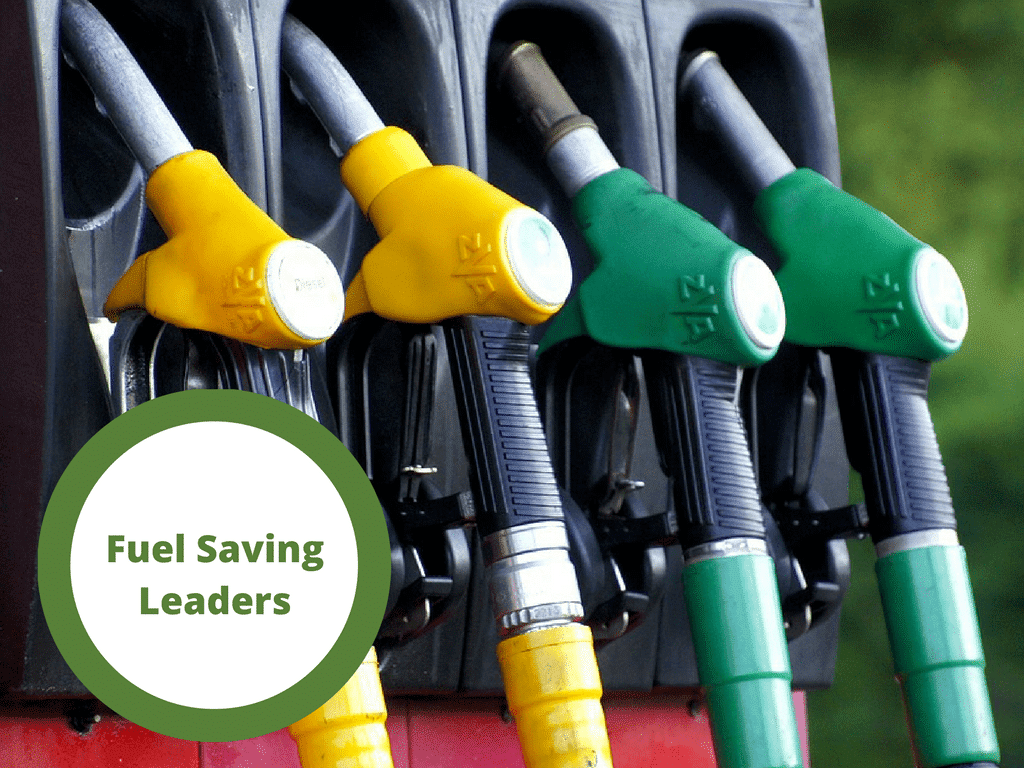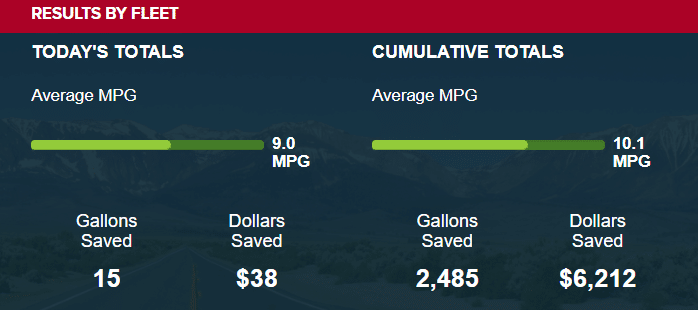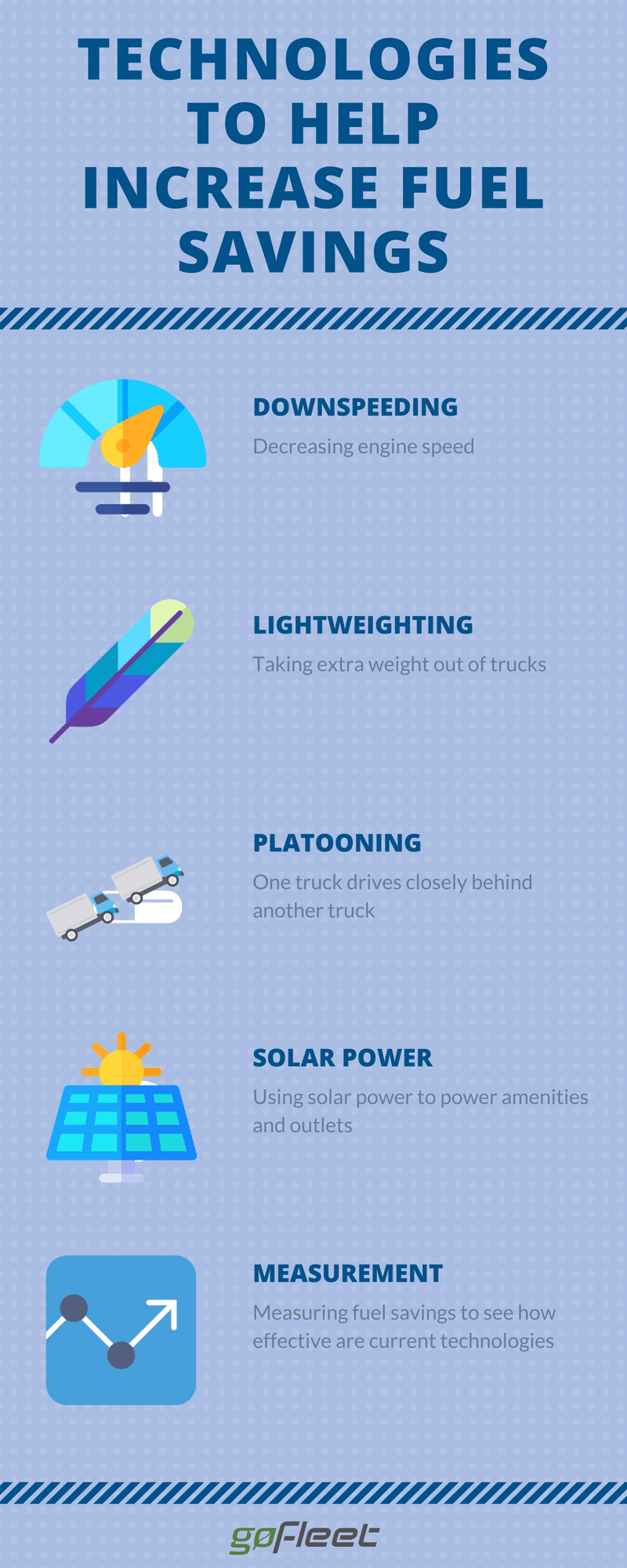How Industry Leaders are Increasing Fleet Fuel Savings
Fleets in the “Run On Less” program are showing off their fleet fuel savings by participating in a national roadshow. These fleets invested in technologies that reduced fuel consumption.
The Run On Less participants are measuring their fuel consumption with Geotab. They set an ambitious target of 9.0 MPG and receive a live report on their performance. How are they doing?
Since our last update, the fleets are still exceeding their targets. As of the start of Day 15, the cumulative average MPG is 10.1. Overall fleet savings have already exceeded $6,000. Let’s explore a few technologies featured in the roadshow.
Downspeeding
Downspeeding is a system where engine speed is reduced. Mark Kuhn of Ricardo Strategic Consulting explains that “you get significant benefit when reducing a traditional 1800 rpm”. Reducing engine speed directly leads to fuel saving.
In fact, most fleets save around 2-3% on fuel when implementing downspeeding by itself. Downspeeding is most effective, however, when combined with other initiatives. Mike Roeth, Trucking Efficiency Lead at NACFE explains, “when you do a downspeeding strategy, you need to think about other technologies”.
When combined with other technologies, downspeeding effectiveness almost doubles. Combined with tools such as electronically controlled transmission or 6 x 2 axles, fleet fuel reduction is now 3-6%.
Lightweighting
Trucks are carrying more and more loads. Trucks are also adding driver amenities and other truck features. All of this adds thousands of pounds of weight to the truck. Fleets are balancing added weight with a process called lightweighting.
Lightweighting takes weight out of trucks. This involves using cheaper materials or integrating parts to get rid of excessive equipment. Andrew Halon, project manager of lightweighting at NACFE, listed a few examples. “Air suspension systems would save you 275 lbs, a 6×2 [axle] saves 400 lbs, and aluminum frames can save you 1000 lbs.”, said Halon.
Reducing unnecessary weight directly leads to fleet fuel savings. Lightweighting increases fuel savings by 0.5 – 0.6% for every 1000 lbs of weight reduction.
Platooning
Platooning is a way of driving where one truck drives directly behind another truck. This formation improves airflow and reduces fuel by 4% for the lead truck and 10% for the trailing truck.
Although platooning is a valuable fleet fuel saving tip, it also presents some challenges. How can trucks drive at a safe distance to one another? How will public drivers react?
Recent safety advances made platooning feasible. Some trucks are equipped with distance sensors. These sensors allow trucks to maintain a safe distance and alerts drivers to impending collisions.
Solar Power
Solar power GPS tracking is becoming more popular in the trucking industry. Solar panels are being mounted on top of tractors and trailers. These panels power in-cab amenities such as HVAC units or power outlets.
Solar power is much more efficient than using batteries. “Dead batteries are a real problem,” said Roeth. “Going out to charging batteries and powering the trucks can be a huge expense”.
Measuring Fleet Fuel Savings
After adding technologies, a key question is, “how can I measure the results?”. In order to see if fuel saving initiatives are effective, many fleets rely on telematics.
Vehicle trackers create fuel reports. These reports provide data on how much fuel was saved. A great example are the reports from the Run on Less program. In those reports, managers can see their fleet’s MPG and how much fuel was saved each period.
References
http://www.truckingefficiency.org/powertrain/downspeeding
http://www.truckingefficiency.org/tractor-aerodynamics/weight-reduction-tractors
http://www.truckingefficiency.org/operational-practices/two-truck-platooning


